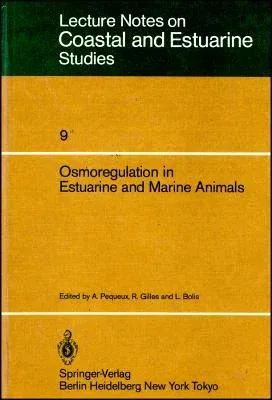Osmoregulation in Estuarine and Marine Animals: Proceedings of the Invited Lectures to a Symposium Organized Within the 5th Conference of the EuropeanPaperback, 1 June 1984

Qty
1
Turbo
Ships in 2 - 3 days
In Stock
Free Delivery
Cash on Delivery
15 Days
Free Returns
Secure Checkout
Part of Series
Coastal and Estuarine Studies
Print Length
222 pages
Language
English
Publisher
Springer
Date Published
1 Jun 1984
ISBN-10
3540133534
ISBN-13
9783540133537
Description
Product Details
Book Format:
Paperback
Country of Origin:
US
Date Published:
1 June 1984
Dimensions:
24.41 x
16.99 x
1.27 cm
Genre:
Ecology
ISBN-10:
3540133534
ISBN-13:
9783540133537
Language:
English
Location:
Berlin, Heidelberg
Pages:
222
Publisher:
Weight:
381.02 gm

